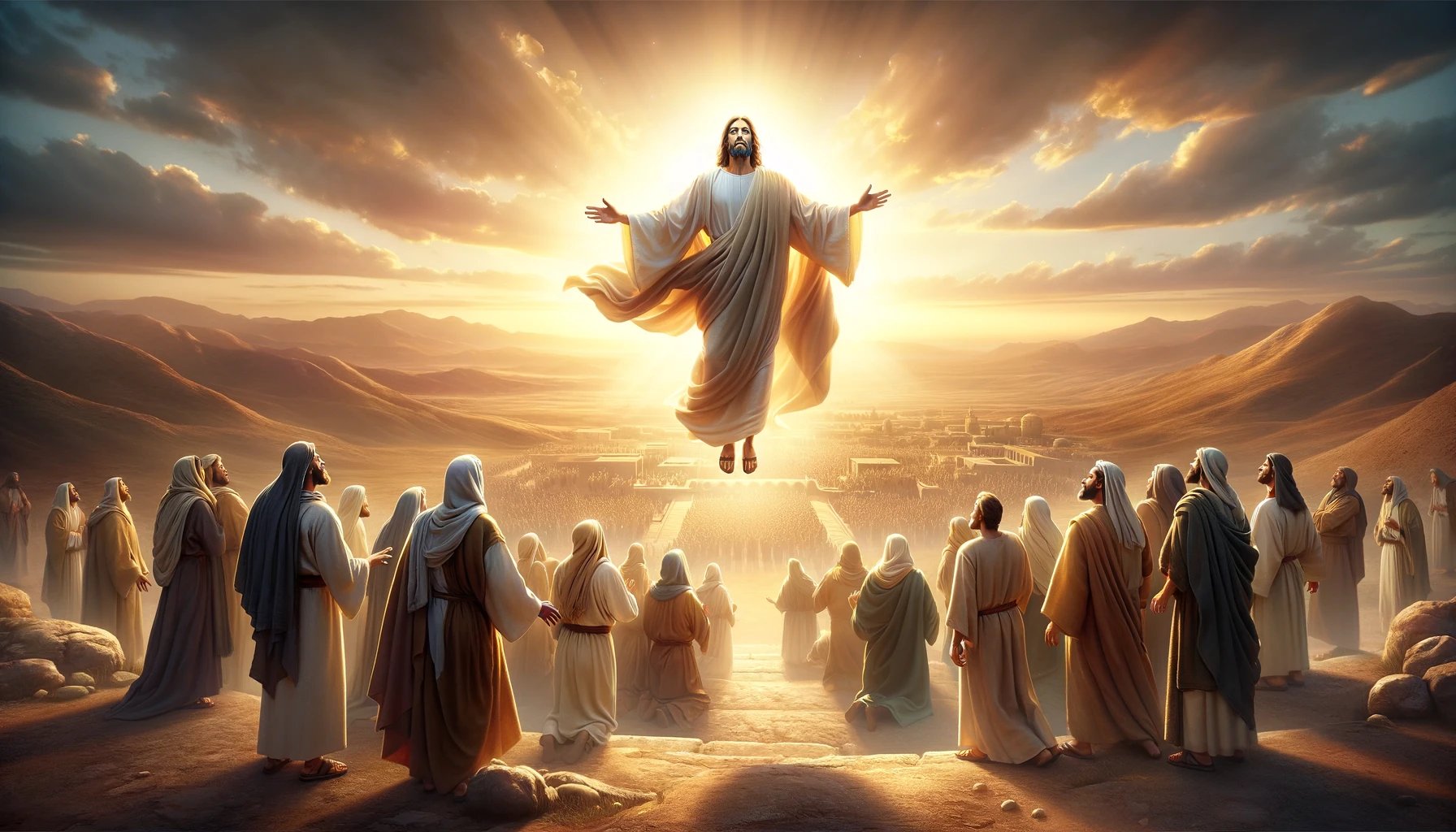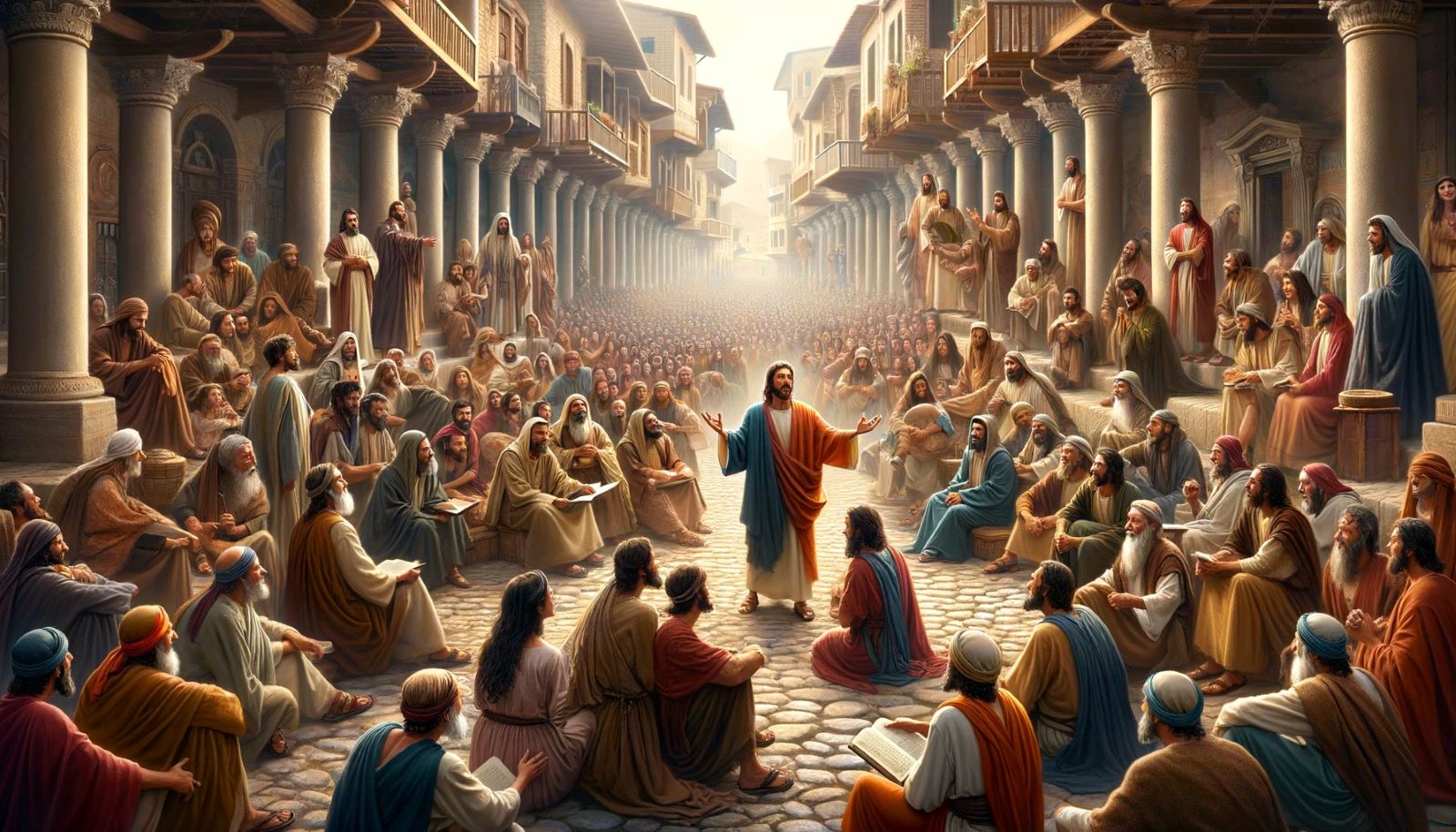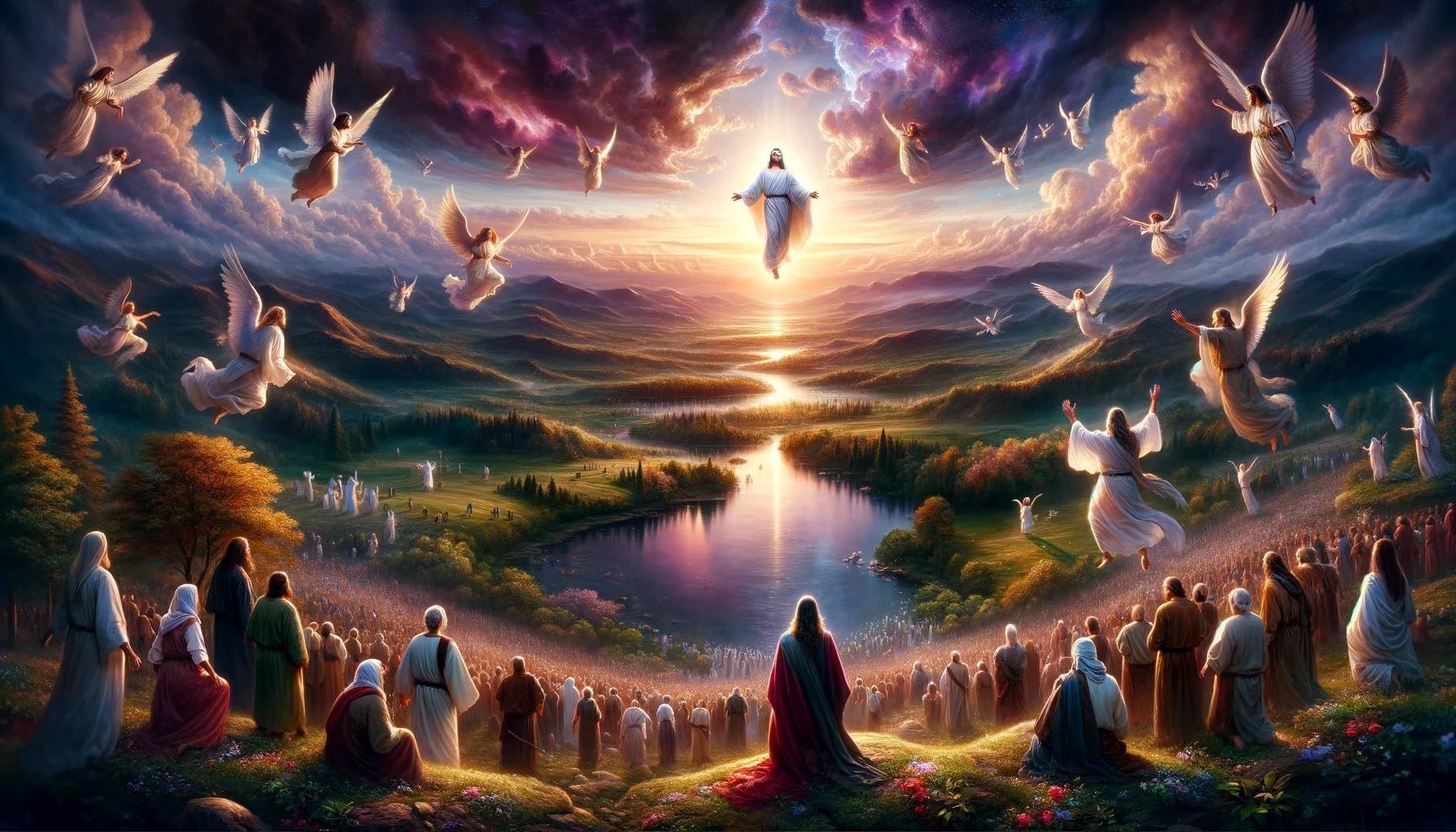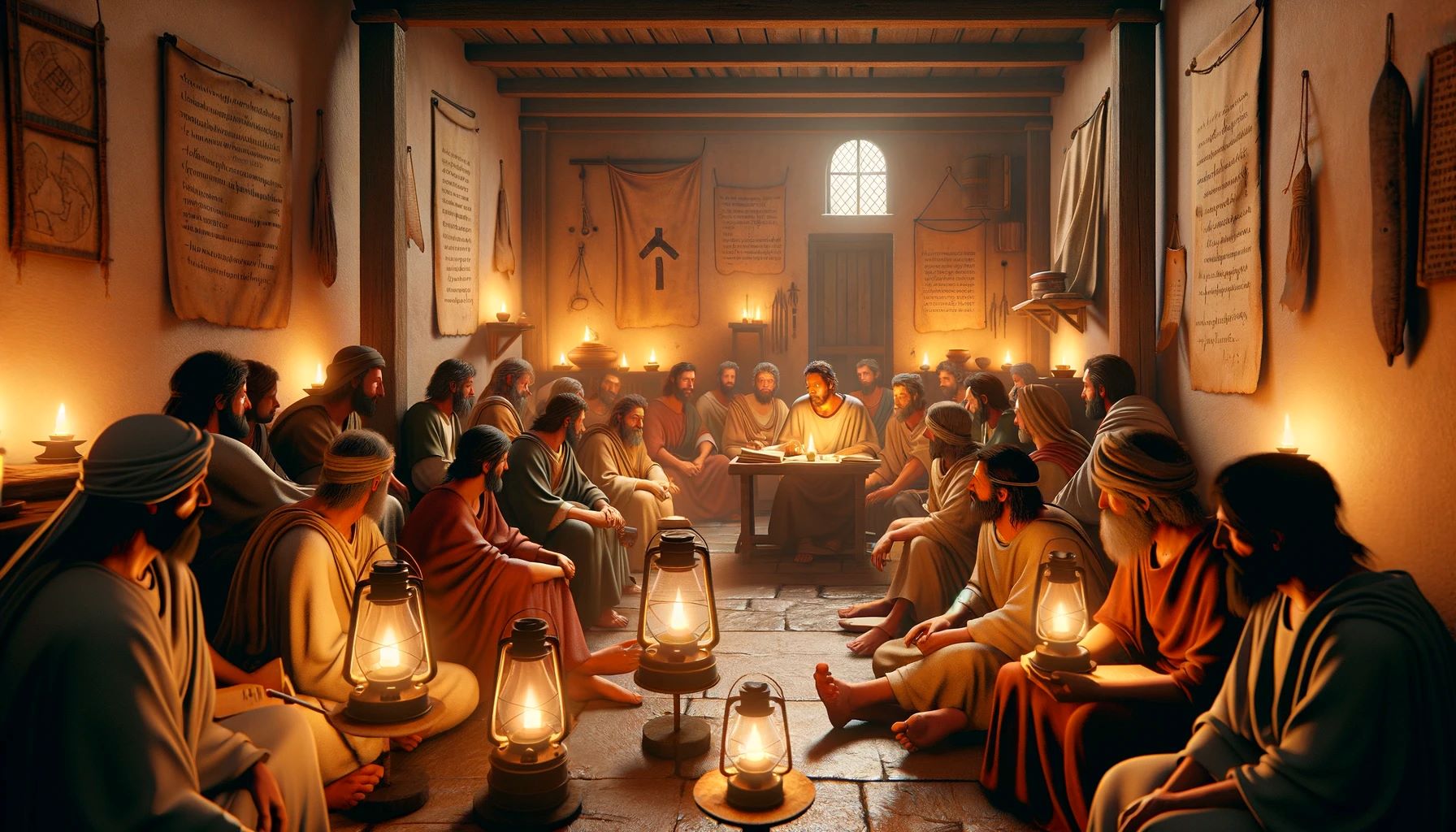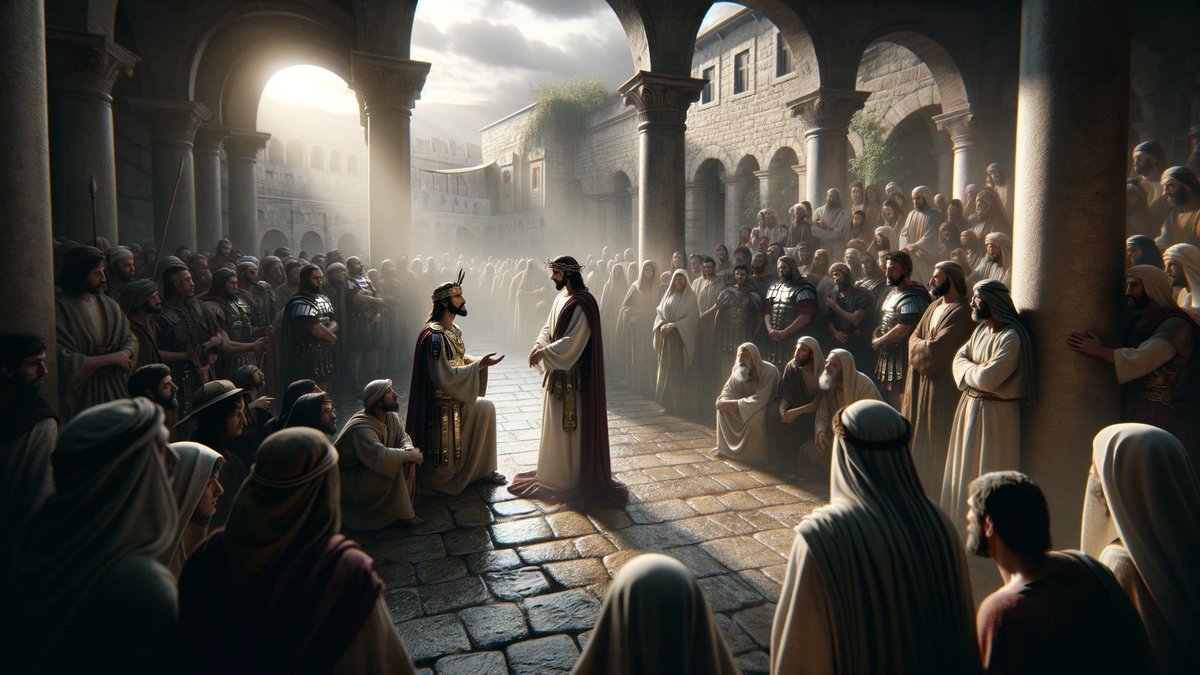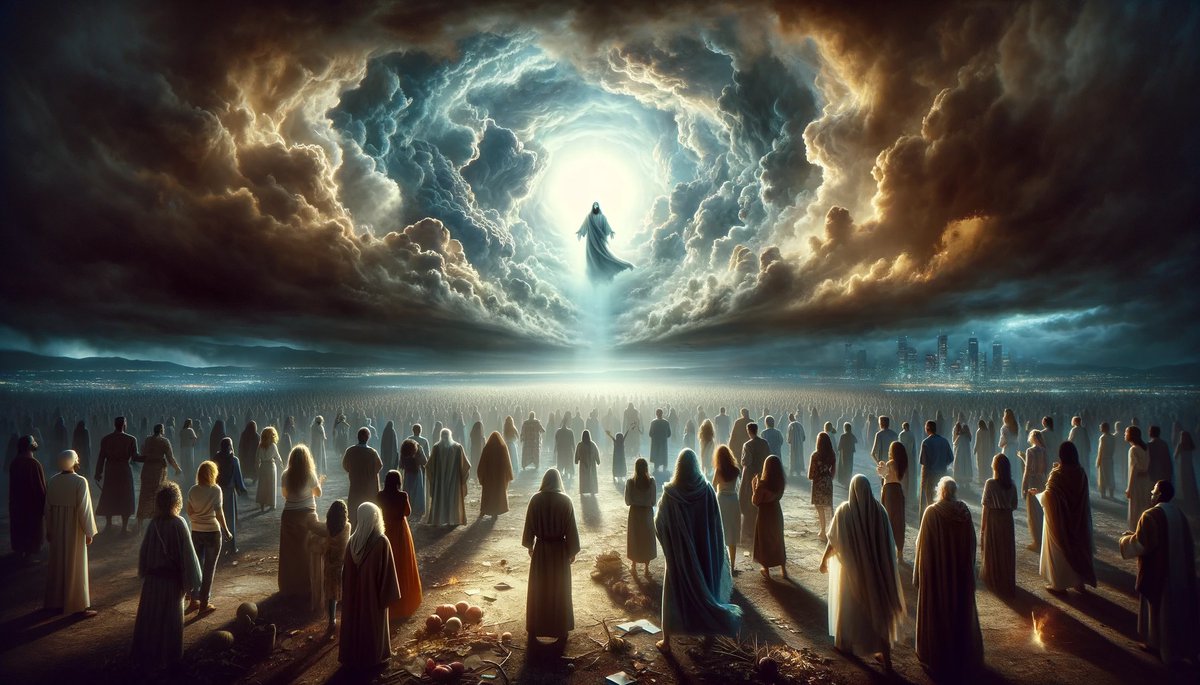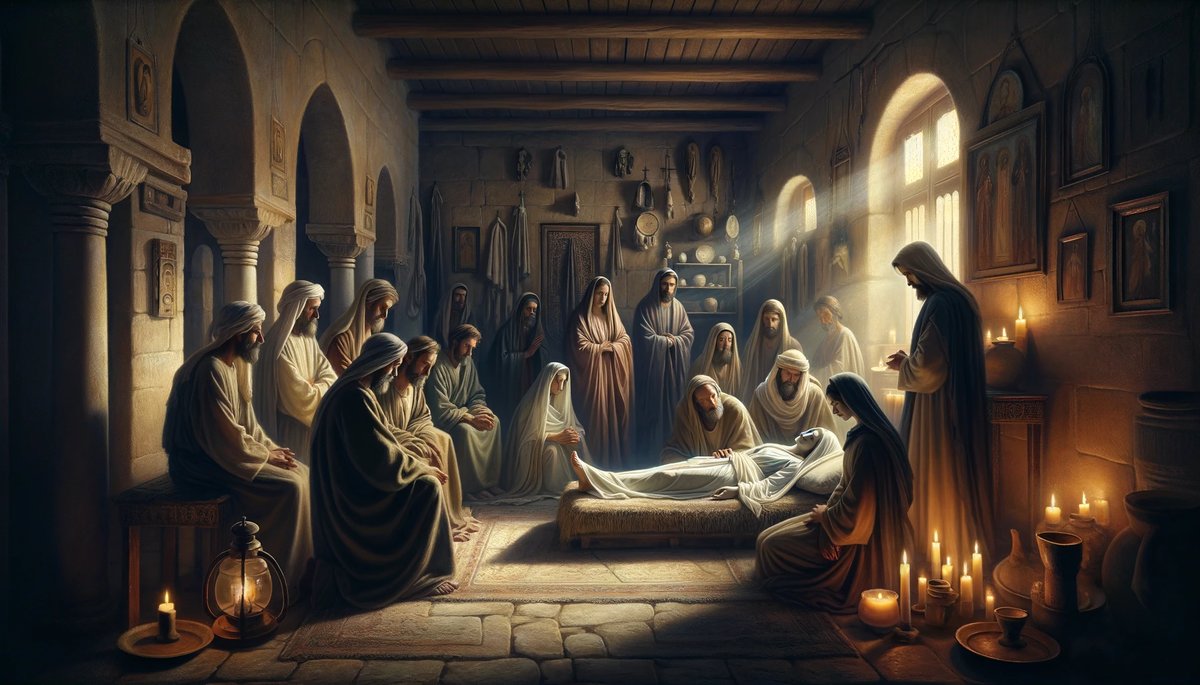Home>Christian Videos>Bible Stories>What Happened After The Crucifixion Of Jesus Christ
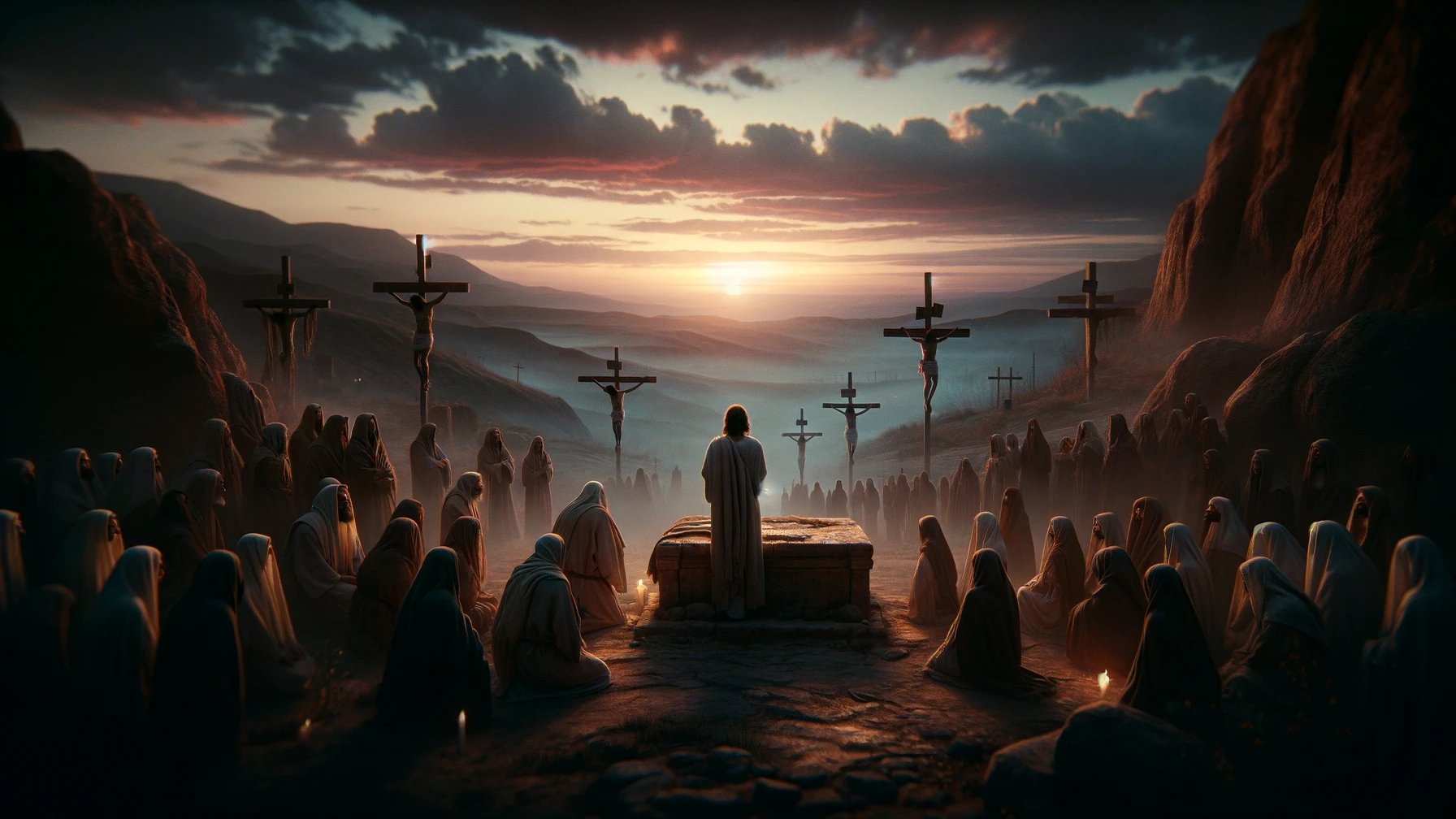

Bible Stories
What Happened After The Crucifixion Of Jesus Christ
Published: March 1, 2024
Ericka Andersen, an editor at Christian.net, expertly merges digital strategy with content creation, focusing on faith and societal issues. Her communication skills enhance the platform's engaging narratives, fostering meaningful dialogue on belief's impact on society.
Discover the aftermath of Jesus Christ's crucifixion and its impact in this compelling Bible story. Explore the events that followed the crucifixion and their significance. Gain insight into the powerful narrative of Jesus' sacrifice and its enduring legacy.
(Many of the links in this article redirect to a specific reviewed product. Your purchase of these products through affiliate links helps to generate commission for Christian.net, at no extra cost. Learn more)
Table of Contents
The Resurrection of Jesus Christ
The resurrection of Jesus Christ is a pivotal event in Christian theology, marking the triumph of life over death and the fulfillment of divine prophecy. According to the New Testament, Jesus was crucified, died, and was buried in a tomb. However, on the third day, he rose from the dead, appearing to his disciples and followers before ascending to heaven. This miraculous event is central to the Christian faith, symbolizing the promise of eternal life and the defeat of sin and evil.
The resurrection of Jesus Christ is a cornerstone of Christian belief, serving as a source of hope and inspiration for millions of believers around the world. It is seen as a demonstration of God's power and love, as well as a testament to the divinity of Jesus. The resurrection is celebrated annually during the Easter holiday, with Christians commemorating the triumph of Jesus over death and the salvation it offers to humanity.
The resurrection of Jesus Christ has been a subject of theological debate and scholarly inquiry for centuries. While some skeptics have questioned the historical authenticity of the resurrection, many theologians and historians have pointed to the accounts of eyewitnesses and the transformation of Jesus' disciples as evidence of its reality. The resurrection continues to be a source of spiritual reflection and contemplation for Christians, inspiring devotion and shaping their understanding of God's redemptive plan for humanity.
The Reactions of the Disciples
-
Shock and Disbelief: Following the crucifixion of Jesus Christ, the disciples were initially overwhelmed with shock and disbelief. They had placed their hopes in Jesus as the long-awaited Messiah who would deliver the Jewish people, and his death on the cross shattered their expectations. The disciples were deeply grieved and struggled to comprehend the events that had transpired.
-
Encounters with the Risen Christ: Despite their initial disbelief, the disciples began to experience encounters with the risen Jesus. These encounters were transformative, as they provided irrefutable evidence of Jesus' resurrection. The disciples' shock and sorrow turned into joy and conviction as they witnessed the living Christ in their midst.
-
Renewed Faith and Mission: The disciples' reactions evolved from doubt to unwavering faith. They became bold proclaimers of the gospel, spreading the message of Jesus' resurrection and the salvation it offered. Their encounters with the risen Christ ignited a fervent mission to share the good news with the world, leading to the establishment and growth of the early Christian church.
-
Persecution and Martyrdom: The disciples' unwavering commitment to their faith in the risen Christ often led to persecution and martyrdom. Despite facing opposition and threats, they remained steadfast in their conviction, demonstrating the profound impact of their encounters with the resurrected Jesus.
-
Legacy and Influence: The reactions of the disciples to the resurrection of Jesus Christ left an indelible mark on the development of Christianity. Their transformation from disheartened followers to fearless evangelists laid the foundation for the spread of the Christian faith, shaping the course of history and inspiring countless believers throughout the ages.
The Spread of Christianity
-
Early Missions and Apostolic Preaching: Following the resurrection of Jesus Christ, the disciples embarked on missions to share the gospel message. Their fervent preaching and witness to the resurrection sparked interest and conversions among diverse audiences. The apostle Paul, in particular, played a pivotal role in spreading Christianity through his missionary journeys across the Roman Empire, establishing vibrant Christian communities in various cities.
-
Diversity of Outreach: The spread of Christianity was characterized by its adaptability to different cultural contexts. Early Christian missionaries tailored their message to resonate with the beliefs and practices of diverse populations, leading to the incorporation of varied traditions and customs into the growing Christian movement. This inclusive approach facilitated the widespread acceptance of Christianity among different ethnic groups and social strata.
-
Roman Roads and Communication Networks: The extensive network of Roman roads and efficient communication systems facilitated the rapid dissemination of Christian teachings. Travel along these roads allowed for the exchange of ideas and the establishment of Christian communities in urban centers and remote regions. The accessibility of transportation and communication played a crucial role in the expansion of Christianity beyond its Palestinian origins.
-
Patronage and Imperial Support: The patronage of influential individuals and, later, the endorsement of Christianity by Roman emperors contributed to its proliferation. The patronage of wealthy benefactors provided resources for the construction of churches and the support of Christian communities. The eventual recognition of Christianity as a legitimate religion by the Roman Empire further accelerated its spread, leading to the conversion of significant segments of the population.
-
Martyrdom and Persecution: Despite facing periods of intense persecution, early Christians remained steadfast in their faith, inspiring others through their courage and resilience. The martyrdom of believers served as a powerful testimony to the sincerity and conviction of the Christian message, attracting the attention and sympathy of onlookers. The willingness of Christians to endure persecution for their beliefs contributed to the expansion of Christianity by exemplifying the strength of their convictions.
-
Continued Expansion and Global Reach: Over the centuries, Christianity continued to expand, reaching far beyond the boundaries of the Roman Empire. Missionary endeavors, the translation of the Bible into various languages, and the establishment of educational institutions and charitable organizations furthered the global reach of Christianity. Today, Christianity is a worldwide faith with diverse expressions and a significant impact on cultures, societies, and individuals across the globe.
The spread of Christianity from its humble beginnings in the first century to its status as a global religion is a testament to the enduring influence of the message of Jesus Christ and the dedication of those who carried it forth.
The Impact on Jewish and Roman Authorities
-
Jewish Authorities' Response:
The resurrection of Jesus Christ posed a significant challenge to the Jewish religious establishment. The claim of Jesus' resurrection and the subsequent spread of Christianity threatened the traditional authority and teachings of the Jewish leaders. They viewed the burgeoning Christian movement as a heretical deviation from their religious norms and sought to suppress it through persecution and opposition. The proclamation of Jesus as the Messiah and the Son of God contradicted the beliefs upheld by the Jewish authorities, leading to vehement resistance and efforts to discredit the Christian message. -
Roman Authorities' Reaction:
The rise of Christianity also elicited responses from the Roman authorities, particularly as the movement gained momentum within the Roman Empire. Initially, the Roman government viewed Christianity with suspicion, perceiving it as a potentially subversive and disruptive force. The refusal of Christians to participate in emperor worship and their exclusive allegiance to Jesus as Lord raised concerns among Roman officials. As a result, Christians faced sporadic persecution and legal sanctions, particularly during periods of political instability and social unrest. -
Persecution and Martyrdom:
The impact of the resurrection on Jewish and Roman authorities manifested in the form of persecution and martyrdom of early Christians. Both the Jewish religious leaders and the Roman authorities sought to suppress the spread of Christianity through various means, including imprisonment, torture, and execution. The steadfast commitment of Christians to their faith, even in the face of persecution, served as a testament to the transformative power of the resurrection and the resilience of the Christian community. -
Shift in Policies:
Despite initial opposition, the impact of the resurrection gradually led to shifts in the policies of both Jewish and Roman authorities. The resilience of the Christian movement, coupled with the exemplary conduct of believers, garnered respect and admiration from some segments of society. Over time, there were instances of Roman officials and Jewish leaders displaying tolerance towards Christianity, paving the way for a more favorable environment for the growth of the faith. -
Historical Legacy:
The impact of the resurrection on Jewish and Roman authorities left a lasting historical legacy. The interactions between early Christians and the ruling powers shaped the narrative of Christian martyrdom and resilience, contributing to the development of Christian identity and theology. The struggles faced by the early Christian community under the authority of both Jewish and Roman powers underscored the profound impact of the resurrection on societal dynamics and religious institutions.
The impact of the resurrection on Jewish and Roman authorities reverberated throughout the ancient world, leaving an indelible mark on the historical trajectory of Christianity and its interactions with established religious and political structures.
The Development of Christian Theology
-
Early Christian Thought and Doctrine:
The development of Christian theology can be traced to the formative period of the early church, where believers grappled with the implications of Jesus Christ's life, death, and resurrection. The apostolic and post-apostolic eras witnessed the articulation of foundational Christian doctrines, such as the nature of God, the divinity of Jesus Christ, and the role of the Holy Spirit. Early theologians, including the apostles themselves, sought to articulate the significance of Jesus' teachings and the redemptive implications of his sacrificial death and resurrection. -
Patristic Era and Ecumenical Councils:
The patristic era marked a significant phase in the development of Christian theology, characterized by the writings and teachings of the Church Fathers. These influential theologians, such as Augustine of Hippo, Origen, and Athanasius, contributed to the formulation of key theological concepts, including the Trinity, the nature of Christ, and the doctrine of salvation. The ecumenical councils, such as the Council of Nicaea and the Council of Chalcedon, played a crucial role in addressing theological controversies and establishing orthodox Christian beliefs. -
Scholasticism and Medieval Theology:
The medieval period witnessed the flourishing of scholastic theology, exemplified by the works of theologians like Thomas Aquinas. Scholasticism sought to reconcile Christian faith with the philosophical and intellectual currents of the time, leading to the synthesis of theology and reason. The development of Christian theology during this era encompassed discussions on topics such as the nature of God, the problem of evil, and the relationship between faith and reason. -
Reformation and Post-Reformation Theology:
The Protestant Reformation brought about significant theological developments, challenging established doctrines and practices within the Roman Catholic Church. Reformers such as Martin Luther and John Calvin emphasized the authority of Scripture, justification by faith, and the priesthood of all believers. The ensuing post-Reformation period witnessed the diversification of Christian theology, with the emergence of various theological traditions and denominational perspectives. -
Modern and Contemporary Theological Trends:
The modern and contemporary periods have seen a rich tapestry of theological reflection and inquiry. The impact of historical criticism, the rise of liberation theology, and the dialogue between Christianity and other religious traditions have contributed to the ongoing development of Christian theology. Contemporary theologians continue to engage with pressing issues such as social justice, environmental ethics, and interfaith dialogue, shaping the evolving landscape of Christian thought. -
Global and Contextual Theology:
The globalization of Christianity has given rise to the development of global and contextual theology, which seeks to address the diverse cultural, social, and political contexts in which the Christian faith is practiced. The recognition of the plurality of Christian expressions and the incorporation of diverse voices from various regions have enriched the theological conversation, fostering a more inclusive and comprehensive understanding of Christian belief and practice.
The development of Christian theology is a dynamic and ongoing process, reflecting the enduring relevance of the Christian faith in engaging with the complexities of human existence and the pursuit of spiritual truth.
